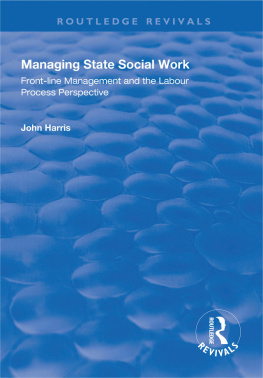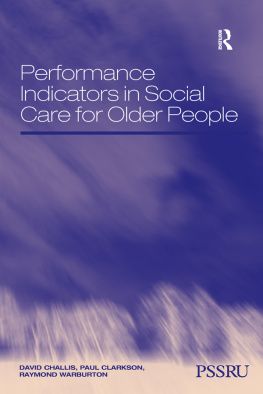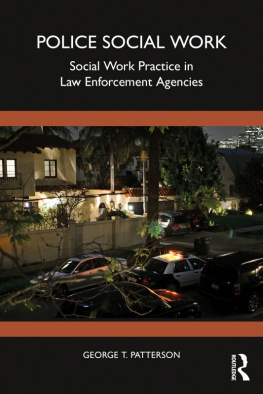First published in 1974 by George Allen & Unwin Ltd
This edition first published in 2022
by Routledge
2 Park Square, Milton Park, Abingdon, Oxon OX14 4RN
and by Routledge
605 Third Avenue, New York, NY 10158
Routledge is an imprint of the Taylor & Francis Group, an informa business
1974 George Allen & Unwin Ltd
All rights reserved. No part of this book may be reprinted or reproduced or utilised in any form or by any electronic, mechanical, or other means, now known or hereafter invented, including photocopying and recording, or in any information storage or retrieval system, without permission in writing from the publishers.
Trademark notice: Product or corporate names may be trademarks or registered trademarks, and are used only for identification and explanation without intent to infringe.
British Library Cataloguing in Publication Data
A catalogue record for this book is available from the British Library
ISBN: 978-1-03-203381-5 (Set)
ISBN: 978-1-00-321681-0 (Set) (ebk)
ISBN: 978-1-03-205470-4 (Volume 21) (hbk)
ISBN: 978-1-03-205476-6 (Volume 21) (pbk)
ISBN: 978-1-00-319769-0 (Volume 21) (ebk)
DOI: 10.4324/9781003197690
Publishers Note
The publisher has gone to great lengths to ensure the quality of this reprint but points out that some imperfections in the original copies may be apparent.
Disclaimer
The publisher has made every effort to trace copyright holders and would welcome correspondence from those they have been unable to trace.
First published in 1974
This book is copyright under the Berne Convention. All rights are reserved. Apart from any fair dealing for the purpose of private study, research, criticism or review, as permitted under the Copyright Act, 1956, no part of this publication may be reproduced, stored in a retrieval system, or transmitted, in any form or by any means, electronic, electrical, chemical, mechanical, optical, photocopying, recording or otherwise, without the prior permission of the copyright owner. Enquiries should be addressed to the publishers.
George Allen & Unwin Ltd. 1974
ISBN 0 04 360031 X Hardback
ISBN 0 04 360032 8 Paperback
Printed in Great Britain
in 11 point Fournier type
by Unwin Brothers Limited
The Gresham Press
Old Woking
Surrey
To my parents
FOREWORD
BY PROFESSOR R. A. PARKER
There are some issues in the social services which, it is generally agreed, deserve the closest attention but which somehow fail to get it. No director of social services, for instance, would deny that the reception of people seeking help is important; nor would any of his social workers. Yet reception has rarely been looked at carefully enough to discover what actually happens and why. As a result there has been no way of knowing what the overall effects of reception procedures are or how best they might be improved. Ignorance of what goes on at this sensitive point of contact with people in need is liable to distort any estimation of the nature and extent of that need. What is more, of course, it is frequently when they are first received that people form crucial opinions about the system beyond.
In this book Tony Hall reports on research which examines the reception issues in a new and illuminating fashion. What he has to tell us is of the utmost importance in the provision of the social services; especially so because his evidence is assembled and explored within a conceptual framework. He relates the reception process to the problems of rationing. That is, he asks what part reception plays in reducing the demands upon a service to manageable proportions and how changes in the volume of demand affect that relationship. He also considers how his findings may be understood by reference to the disparities between the assumed role of the receptionist and the practicalities of the day-to-day job in manning the frontier of the organisation. There are some fascinating insights into how the flow of border traffic is handled.
This research was begun before the reorganisation and unification of the personal social services. Although undertaken in former local childrens departments its conclusions are entirely relevant to todays situation. This is not only because the problem remains with us but also because hypotheses are put forward about how the process of reception varies in different circumstances. In this sense the study suggests how change for the better might be achieved as well as contributing to the theory of social service organisations.
The book is, moreover, a salutary warning to all of us who are engaged in administering and providing services. The warning is about the dangers of taking things for granted and about the ease with which we slip into an uncritical acceptance of what is to us routine but which to the outsider is new, perplexing and experienced quite differently.
Tony Hall is to be congratulated on writing a perceptive, cogent and useful account of the point of entry.
ACKNOWLEDGEMENTS
Many people have played a part in the writing of this book, from its development as an idea in 1968 to the completion of the final draft towards the end of 1973. I would like to thank Adrian Webb and Garth Plowman of the London School of Economics for their valuable assistance and comments at the beginning of the project, and Robin Huws Jones and David Jones of the National Institute for Social Work for their much needed advice and encouragement in the final stages. I am grateful to my wife, Phoebe, who kept me sane when my mental stability as a lone researcher was very much in doubt, and who acted as my sharpest critic. I am particularly indebted to Roy Parker both for his ideas and help at the beginning of the project and for his support and enthusiasm throughout.
Thanks are also due to a large number of long-suffering social workers who answered a lot of questions and spent a great deal of time helping with my research when they had more important things to do. Finally, I must thank the receptionists themselves who have contributed so much to this study. At times my analysis of their activities may seem to imply criticism of their work, and for this I apologise in advance. Most of the reception staff I met during the study were highly committed and caring individuals who were asked to do an impossible job.
Anthony S. Hall
Bristol University
January 1974
CONTENTS
Foreword by Professor R. A. Parker
Acknowledgements
1 The Client Reception Process
2 Methodology
3 Borough
4 New Town
5 West County
6 Cassford
7 Client Reception and Intake









